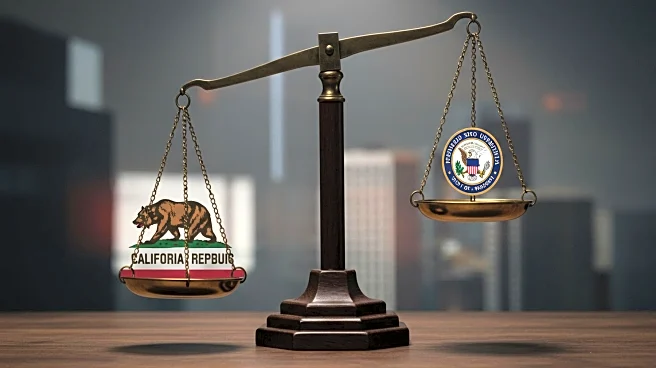What is the story about?
What's Happening?
California is challenging President Trump's deployment of National Guard troops to Los Angeles, arguing it was illegal and caused public anxiety. The state's attorney, Meghan Strong, contends that the deployment violates the Posse Comitatus Act, which restricts military involvement in civilian law enforcement. The federal government, represented by Eric Hamilton, argues the deployment was legal, aimed at protecting federal property during protests. The case is being heard in a three-day bench trial, with California seeking an injunction to limit military involvement in immigration enforcement.
Why It's Important?
The case raises significant legal and constitutional questions about the limits of presidential authority and the use of military forces in domestic law enforcement. It highlights tensions between state and federal governments, particularly in the context of immigration enforcement and civil protests. The outcome could set a precedent for future military deployments in civilian contexts and influence national discussions on the balance between security and civil liberties. The trial also reflects broader political dynamics, with California challenging federal actions under President Trump.
What's Next?
The trial will conclude soon, with potential implications for the legality of military deployments in civilian areas. The decision could impact future federal actions in other cities and states, particularly regarding immigration enforcement. The case may lead to legislative or policy changes aimed at clarifying the limits of military involvement in domestic law enforcement. The ongoing deployment of National Guard forces in Washington, D.C., and other cities may be influenced by the trial's outcome.














